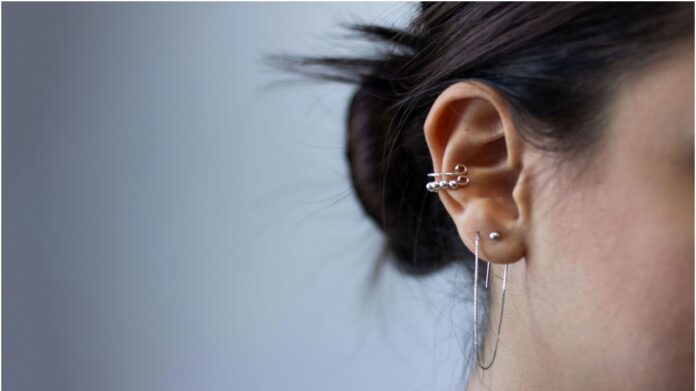There are so many types of piercings out there that it’s hard to know where to start if you’re thinking about getting one yourself! The You has created a comprehensive guide to getting body piercings. We’ll walk you through everything by choosing the right piercer to decide which types of piercing will work best for your budget and lifestyle.
Let’s get started!
5 questions to ask yourself before getting pierced
There are many types of piercings, but not all are for everyone. Your skin type, lifestyle, and personal tastes should all be taken into consideration when deciding on what types of piercings are best for you.
Ask yourself the following questions.
- What types of piercings should I get?
- How much is it going to cost me?
- Where can I go to get it done?
- Are there any health risks associated with body piercings?
- Does my employer/classmates/friends approve of body piercings?
How long do piercings take?
The actual piercing process itself can take anywhere from a few seconds (for something like an ear piercing) to about 15 minutes (for a genital piercing). The healing time for different types of piercings varies widely, but keep in mind that there are some parts of your body that are slower to heal than others. This isn’t surprising, since different tissues heal at different rates. For example, cartilage takes around 3-6 months to fully heal.
How much do they cost?
Many people what to get piercings without realizing how expensive they can be. The average cost of a belly button piercing is $40-$50, while nose piercings range anywhere from $50-$250 and earlobe piercings typically cost under $20. That’s just for one! Now, if you were thinking about getting multiple types of piercings at once, that can get extremely expensive.
What type of jewelry should you wear for a fresh piercing?
So you’ve decided to get new types of piercings. Now, let’s talk about aftercare. There are many misconceptions regarding pierced ears and jewelry, but it’s important you know what works best before moving forward with any new piercing. For example, if you have long hair and choose an earring that is prone to snagging (like studs or hoops), you run a risk of trapping bacteria in your piercings — which can cause infection. Ouch!
Can you change your jewelry after healing is complete?
Yes, but be careful. If you remove and reinsert a piece of jewelry that has been in your piercing for three months or less, you may need additional healing time before wearing it again. After removing a piece of jewelry, follow these steps before putting on a new one: Clean your piercing with antibacterial soap and warm water. Pat dry gently with a soft cloth or paper towel. Soak your piercing in plain warm water for five minutes.
When can you remove your piercing completely?
If your piercer advised against removing your piercing during a certain amount of time, never remove it without consulting your piercer again. Even if you can remove your piercing when it’s fully healed, re-piercing may be more difficult due to scarring. It’s best to leave a piercing in for at least two weeks longer than what is recommended by your piercer.
To learn more, check out the article ‘Piercing Types: A Detailed Guide’ in theYou online magazine.


